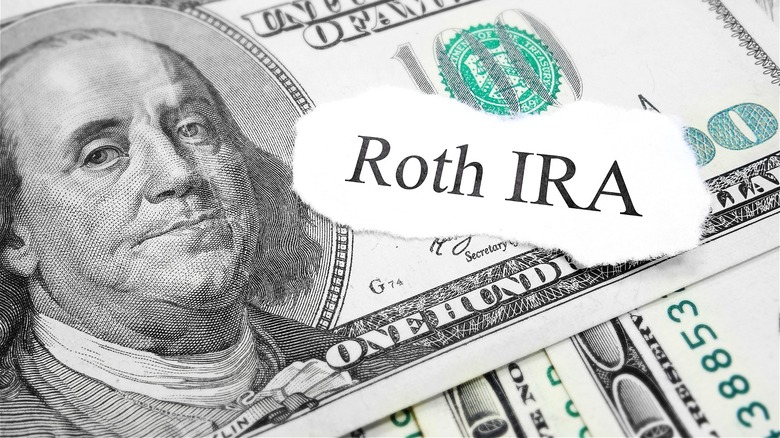Is It Okay To Withdraw Money From Your Roth IRA?
The Roth individual retirement account, Roth IRA, developed in the late 1990s and named after Delaware Sen. William Roth, is a powerful financial tool for funding a successful retirement. Unlike a traditional IRA that allows tax-free contributions, a Roth IRA taxes contributions but allows that money to grow tax-free through investment, then be withdrawn tax-free in retirement.
For many investors, paying taxes on contributions now is going to be much more economical than paying income tax on the distributions later. That's because the Roth IRA's balance will likely grow considerably through investing over many years. Additionally, there are no mandatory withdrawals (called required minimum distributions, or RMDs) so your investments can continue to grow after retirement if you don't need the funds for living expenses.
Roth IRAs also have different rules than traditional IRAs or 401(k)s when it comes to withdrawing money prior to reaching retirement age. As it so happens, the Roth IRA is more flexible than others in this regard because contributions are already taxed in the present. However, where it starts to get complicated is when account holders wish to also withdraw earnings from their plans alongside the original contributions.
Generally speaking, contributions can be withdrawn from a Roth IRA at any age and at any time without restriction, but withdrawing earnings without penalty or tax consequences is only allowed after the account holder reaches 59 ½ years of age and the account has been open for at least five years. Otherwise, withdrawing earnings will come with a 10% penalty, plus the burden of income taxes, with a few exceptions.
Certain withdrawals are allowed before retirement
As previously mentioned, in order to withdraw Roth IRA earnings penalty-free and tax-free, you'll need to be at least 59 ½ years old and the account must have been open for a minimum of five years. However, a separate set of rules apply if you're younger than 59 ½ and the account was opened less than five years ago. In that case, you can avoid the 10% penalty — but you'll still pay income tax — if earnings are withdrawn for the following reasons:
- To buy your first home (up to a $10,000 withdrawal)
- You're having or adopting a child (up to $5,000)
- To pay for a higher education
- For unreimbursed medical expenses or to pay for health insurance while unemployed
- You've become disabled
- To pay an IRS levy
- You're a military reservist, per IRS rules
- Your beneficiaries make withdrawals after your death
Withdrawing your Roth IRA earnings for any other reason than those listed above from an account that's less than five years old when you're younger than 59 ½ will incur both income taxes and a 10% penalty.
Try to avoid raiding your retirement funds
Note there are a few other combinations of penalties/taxes that exist based on the account holder's age and the age of the Roth IRA account itself. For instance, if your age is less than 59 ½ but you've had the account for more than five years, you can avoid taxes and penalties altogether if purchasing your first home (up to a $10,000 withdrawal), you become disabled, or the withdrawal is made by your heirs after death. Next, what if you're older than 59 ½, but the account is newer than five years old? In that case, you'll owe income tax on any earnings withdrawals but no penalty will be levied, regardless of how the funds are used.
This said, just because you can withdraw contributions from a Roth IRA anytime without penalty — and in some cases, earnings — doesn't mean you should. Doing so is essentially stealing from your future self and hurts your long-term financial health. It's far better to mentally forget about access to retirement funds and let them continue to grow through compound interest and investments. Instead, create a budget to live within the limits of your income and establish an emergency fund for life's unexpected and sometimes unpleasant surprises.


